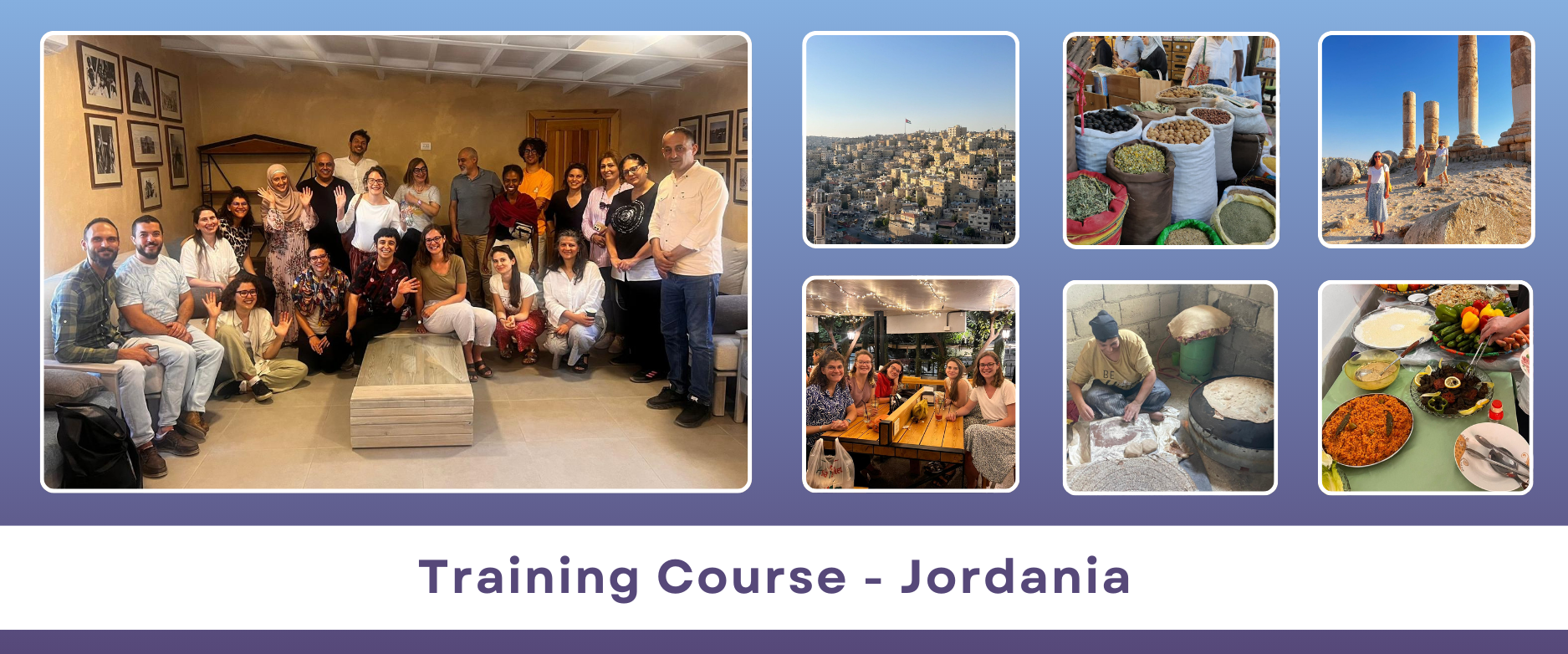In June, three people from Nexes had the opportunity to participate in a training course in Jordan, within the framework of an Erasmus+ project. The objective of the course was to deepen their knowledge in the management of conflicts in intercultural contexts, a complicated task, yet vital for our intercultural competence building.
During a week full of emotions, we had the chance to dive deeper in the rich and diverse Jordanian and Palestinian culture. The visits to organisations, places and people offered us a deep and authentic look into the territory, while the workshops and group work allowed the development of effective communication, linguistic awareness and cultural sensibility. We understood the specific cultural tools of Jordan and built significant relationships both with local communities and with different participants in the training.
Here are some testimonies of the participants:
Bogi: “The week in Amman is an invaluable opportunity to learn about the diverse cultures of Jordan. We had local inhabitants and people from different countries during the sessions. We shared different perspectives and we listened to people who experience intercultural conflict. I was deeply impressed by the extraordinary and meaningful work of local NGOs that we visited and was also moved by their hospitality.”
Nora: “It has been a pleasure to have the opportunity to witness and actively participate with people so dedicated to their work, to have a notorious path in such a diverse country. This experience has allowed me to experience different situations and learn different ways of working that I will be able to apply in Barcelona. In addition, the people in charge I met during the journey, both local and international, have inspired me personally and professionally.”
Marta: “I had a transformative experience. Each meeting with local organisations, activists and communities made for a collection of resilience and creativity in the management of intercultural conflicts. In particular, to have the Palestinian artist Suhad Khatib and to learn from his resistance through art was extremely impactful.”
Training Course in Jordania on conflict management in intercultural contexts

